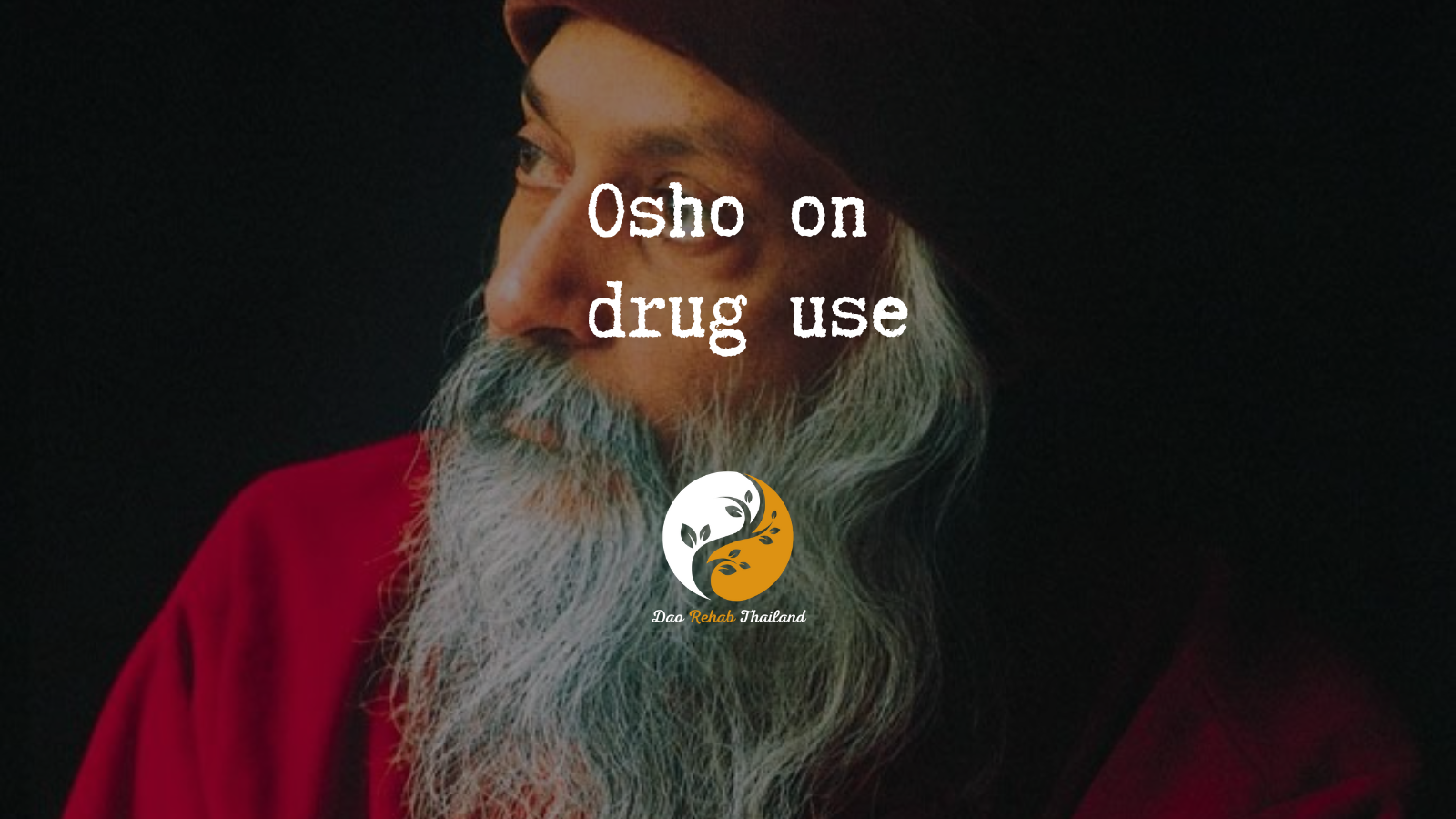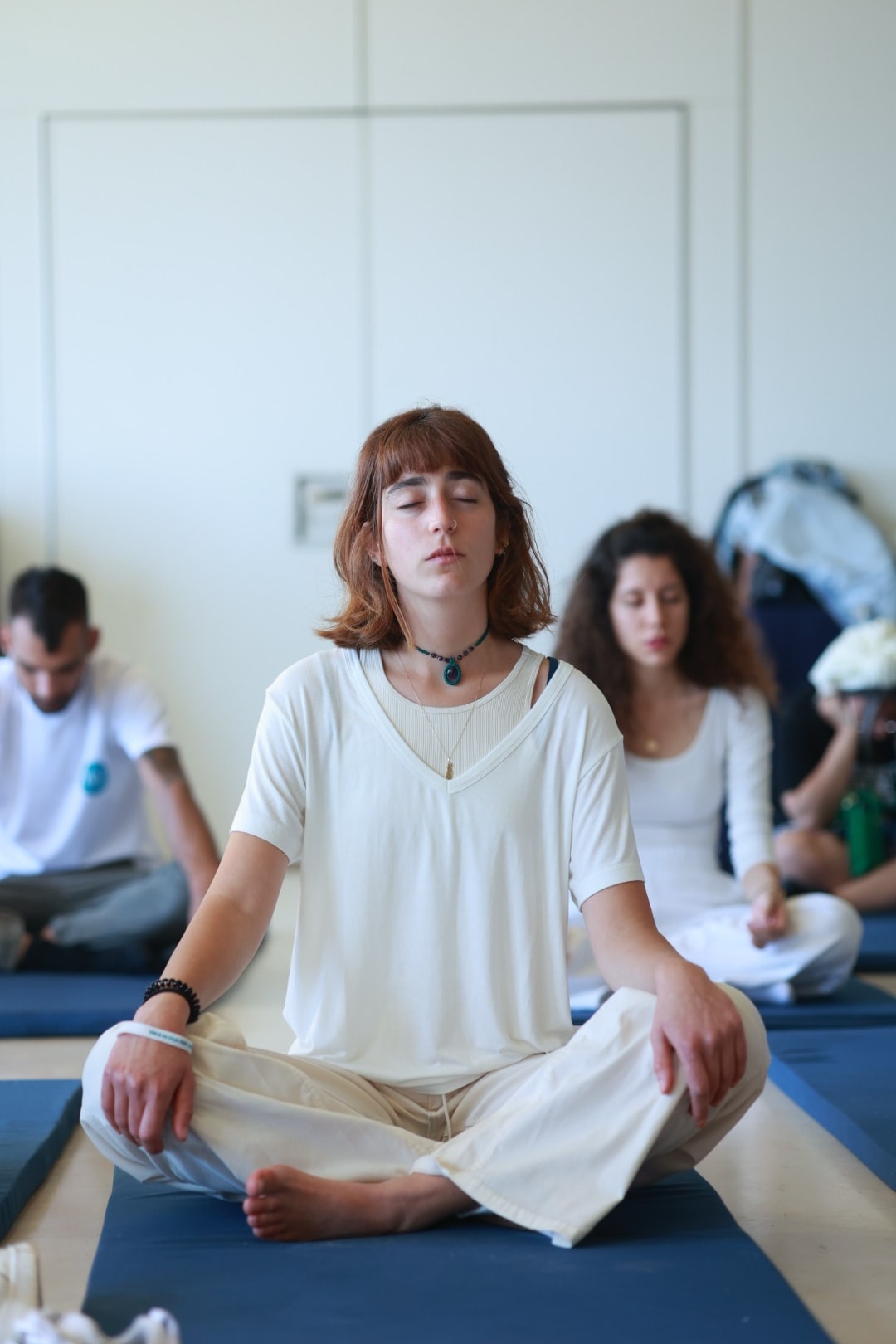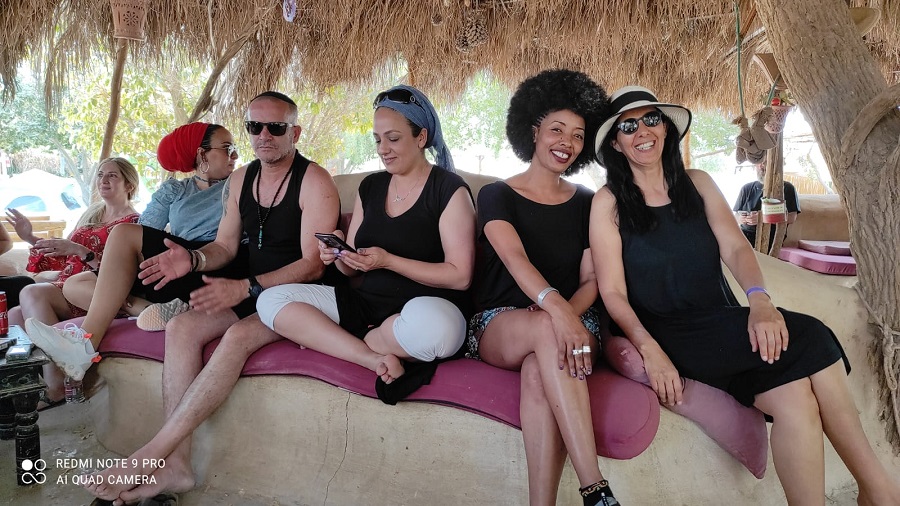
Osho on drug use – Dao Rehab in Thailand
Osho on drug use
“Turning the impossible into possible”

"Detox from Drugs at a Luxury Holistic Center in Thailand and Israel"

Osho on drug use
Drugs are a widespread and worrisome social problem. Instead of banning drugs entirely, governments should work with scientists to find better drugs with less harmful side effects. Banning the use of drugs gives them more importance in the eyes of young people. The attempt to limit access to drugs only increases the temptation to use them, as the Christian God teased man and experienced when he forbade them to eat from the tree of knowledge.
"Holistic Center for Trauma, Addiction, and Mental Imbalance Treatment in Thailand"
“Come to the beginning of your journey to freedom from addiction to alcohol, drugs, and pills, and rediscover your life within the serene embrace of DaoTherapy Rehab in Thailand—where holistic healing meets empowering recovery.”
DaoTherapy Holistic Rehab
Key Elements of Drugs Detox:
Medical Supervision: Drugs detox must be conducted under medical supervision, as the body may experience withdrawal symptoms. These can include nausea, anxiety, muscle aches, and insomnia. A medical team will monitor and manage these symptoms to ensure the patient’s safety and comfort.
Holistic Therapies:
Holistic Therapies: Many detox programs incorporate holistic therapies such as mindfulness, yoga, and meditation to help individuals cope with stress and anxiety during the detox process. These therapies support the mind-body connection and contribute to overall recovery.
Tapering Process
Tapering Process: Drugs detox often involves a gradual tapering of the drug to reduce withdrawal severity. Doctors will slowly decrease the dosage over time to allow the body to adjust to lower levels of the substance.
Psychological Support:
Psychological Support: Like any addiction recovery process, detox from Drugs includes psychological support. This can involve counseling, therapy, or support groups to address the mental and emotional aspects of addiction.
Post-Detox Treatment:
Post-Detox Treatment: After completing detox, continuing treatment is crucial to prevent relapse. This often includes participation in ongoing therapy, group support, and the development of new coping strategies to maintain sobriety.
Drugs are a widespread and worrisome social problem
Drugs are a widespread and worrisome social problem. Instead of banning drugs entirely, governments should work with scientists to find better drugs with less harmful side effects. Banning the use of drugs gives them more importance in the eyes of young people. The attempt to limit access to drugs only increases the temptation to use them, as the Christian God teased man and experienced when he forbade them to eat from the tree of knowledge.
Bans on addictive substances always lead to opposite results. In India, every time alcohol was banned, more people started drinking and consuming more dangerous types of home-made alcohol. When the bans were lifted, the percentage of users dropped immediately. It shows that people turn to drugs and alcohol to escape a difficult and miserable life.
The solution is not to ban drugs but to help scientists produce safer drugs that will be available under medical supervision. Dedicated rooms in hospitals can allow people to experiment with drugs in a controlled environment. This will ease their charm and allure. Sending young people to prison for drug use must not ruin their lives and education. It only makes them more experienced addicts.
Drugs should be considered a medicine that is given in the right dosage and times to provide relaxation and peace to people who need it, much like going to church on Sundays. But for those who practice meditation, drugs are unnecessary and even harmful. Meditation gives deeper happiness and joy than any chemical substance, and drugs only cloud the clarity of consciousness. Therefore, the use of drugs is prohibited in the meditation center but this is due to the lack of need for them and not an arbitrary prohibition.
Ultimately, the goal of governments should be to address the roots of the problem and provide healthy ways to achieve peace of mind. Instead of a futile war on drugs that causes more harm than good, they must recognize the human needs that underlie addictions. The intelligent series of supervised use, together with the promotion of natural methods of transcendence such as meditation, will be able to gradually reduce the harms of drugs to the individual and to society. Only a humane and compassionate, non-judgmental approach can effectively deal with this challenge.

contact us
Contact us with your questions
We would love to speak with you! Feel free to reach out with any questions.

get in touch
Schedule a free consultation
Schedule a free consultation with our team and let’s make things happen!
Introduction: the drug problem in modern society
Drugs are one of the most disturbing social problems of the modern era. The abuse of drugs causes enormous personal and social damages, starting with health and mental problems and ending with crime, violence and the breakdown of family structures. Governments and public bodies invest a lot of effort in the war on drugs, but often the accepted policy of total prohibition does not bring the desired results. A rethinking of the way society deals with the drug issue is required.
The negative consequences of the prohibition policy
The current prevailing approach in most countries is to outlaw drugs and impose heavy penalties on distributors and users. However, as history shows, blanket bans on addictive substances only make them more illegal and dangerous. Elevating drugs to the status of “forbidden fruit” actually increases the temptation to use them, especially among young people who are attracted to thrills and challenges. When the materials are pushed underground, it is more difficult to monitor their quality and distribution, and this leads to the use of particularly contaminated and harmful mixtures.
Past attempts to ban alcohol and their consequences
The drought periods in the United States and other countries in the past serve as an instructive example of the failure of the prohibitive policy. Every time alcohol was banned, it didn’t disappear but simply moved to the black market. More people began to consume alcohol excessively and secretly, often for large sums of money and risking their health by drinking questionable drinks. Criminality and governmental corruption thrived around the illegal trade. On the other hand, when the bans were lifted, excessive alcohol consumption dropped immediately. This is evidence that humans tend to look for ways to escape from difficulties, and if we block them from the harmful ways, they will find healthier alternatives.
The deep need behind drug use
The key to understanding the roots of the drug problem is the recognition that people turn to addictive substances out of distress and dissatisfaction in their lives. For many, everyday reality is full of endless stresses, strains and disappointments. Whether it’s financial difficulties, challenges in relationships, a sense of insignificance or depression and anxiety – all of these create a strong need to escape and forget, even if only for a short time. Without healthy ways of coping, drugs and alcohol are seen as an available and accessible headache for relief from suffering. If we want to reduce the demand for drugs, we must first offer people tools for emotional and mental management of the challenges in their lives.
Towards a policy based on compassion and science
The way to deal with the drug challenge without exacerbating the damage is through a combination of compassion, wise order and leveraging scientific knowledge. Instead of just banning drugs, governments should invest in finding safer and more controlled ways to provide people with the mental relief they need. Scientists can develop synthetic drugs with an improved safety profile, to be used for controlled administration at precise doses and timings for relaxation, concentration or enlightenment. Hospitals and clinics will be able to allow guided experiences with psychoactive substances in a supportive environment, while minimizing the risks and without criminalization. In this way, the mysterious “light” around the drugs will be removed and they will turn from a “forbidden fruit” into a legitimate therapeutic resource.
Education and guidance alongside proportionate enforcement
Just as important as providing safe substitutes is providing extensive education and information about drugs and their consequences. Instead of scaremongering and vague warnings, reliable and balanced information must be conveyed that will allow people to make informed decisions. Young people need to learn about the pleasures and risks associated with different substances, about more responsible ways to explore consciousness and the importance of balance and moderation. When the focus is empowerment and not criminalization, the drugs lose their power. At the same time, the need for enforcement in the face of abuse and risk to others should not be ignored either. Traders and distributors who knowingly cause damage and take advantage of human distress must be held accountable.
Promoting spiritual culture and inner connection
In the long term, the solution to the human urge to addictions lies in cultivating natural ways of mental balance. Acquiring tools for self-awareness, emotional regulation and spiritual-consciousness connection are the key to reducing the need for drugs in the first place. As the practitioners in meditation centers experience, when there is a healthy and deep way to experience relaxation, self-acceptance and authentic joy of life – drugs lose their magic. Qualities such as self-compassion, attentive presence and accepting reality as it is are perfect “drugs” that eliminate any external substance. As more people adopt meditation methods and spiritual empowerment practices, the demand for chemical anesthesia will decrease.
Collective responsibility for a healthy society
Ultimately, reducing the harmful use of drugs requires a perceptual change that combines personal responsibility with social responsibility. We are all partners in creating a reality that invites quality of life and true fulfillment for every person. The more we care for each other’s mental and physical well-being, and promote values of humanity and empathy in all circles of life, we can prevent the deterioration into destructive paths. We should not blame the victims or turn them into criminals. Our role as a society is to provide every individual in it with the conditions for self-realization in benevolent ways.
Towards a future free of addictions
The fight against the scourge of drugs is a crucial crossroads for humanity on its way to a healthier and more conscious future. Continuing to rely on outdated policies of prohibitions and criminalization will only perpetuate the cycle of suffering. If we are able to adopt a holistic approach that combines education, empowering treatment, the science-based series and the promotion of spiritual values – we can gradually reduce drug addictions and fully realize human potential. This is a complex task that requires cooperation between all sectors of society, but the payoff on its side is generations growing up out of emotional stability and an inner sense of value. While drugs will always be a part of human existence, we should not make them the focus of life itself. The vision of the future is a reality where every person will be able to find within themselves the perfect drugs in the form of love, creation and fulfillment.
Key insights
1. Banning drugs only gives them greater importance and creates provocation, especially among young people.
2. Governments should help scientists find better drugs with fewer side effects, instead of suppressing drug use.
3. Every prohibition has a dangerous and harmful effect.
4. The people in society are so miserable that they need something to forget what’s going on in their lives.
5. Drugs never give you anything, they just reflect your current mood.
6. Sending young people to prison because of drugs does not help, it only destroys their lives and their education.
7. Governments should provide people with some form of relaxation, peace and quiet, and if not meditation, at least a medicinal drug.
8. Drugs should be considered medicine and all their negative effects can be changed.
9. Meditation is the perfect drug, without any chemicals, and those who practice it will not benefit from drugs.
10. The problem with drugs is enormous and it requires a creative and scientific solution, not repression and punishments.
Practical advice
1. Try meditation as a healthy substitute for drugs, it will give you more peace, love and joy.
2. Don’t be afraid to explore and try new things, but do so responsibly and safely.
3. Don’t let society or the government dictate to you what to do with your body and mind.
4. Look for healthy ways to deal with the problems and challenges in life, instead of running away from them with drugs.
5. Remember that drugs are not a real solution to any problem, they only make it worse in the long run.
6. Talk openly with the people close to you about your feelings and difficulties, and seek support and help when you need it.
Psychological Support:
Psychological Support: Like any addiction recovery process, detox from Subutex includes psychological support. This can involve counseling, therapy, or support groups to address the mental and emotional aspects of addiction.
Mantras for self-talk
1. I choose the path of awareness and inner calm, not escaping into a virtual reality.
2. I listen to my inner voice and do what is good for me, not what others tell me.
3. I find healthy and creative ways to deal with the challenges and difficulties in life.
4. I live my life with joy, love and freedom, not with fear and unnecessary restrictions.
5. I trust myself and my ability to develop and change for the better at any given moment.
Thought provoking questions
1. Do you agree with the idea that banning drugs only increases the attraction to them and their use? Why or why not?
2. Do you think governments should allow controlled drug use under medical supervision? What advantages or disadvantages do you see in such an approach?
3. Do you believe that meditation and spiritual practices can be an effective substitute for drug use? If so, how? If not, why?
4. What do you think of the claim that it is society and governments that cause the drug problem, by creating misery and oppression in people’s lives?
5. What creative solutions can you offer to the drug problem, apart from prohibitions and punishments? How would you put them into practice?
Psychological Support:
Psychological Support: Like any addiction recovery process, detox from Subutex includes psychological support. This can involve counseling, therapy, or support groups to address the mental and emotional aspects of addiction.








